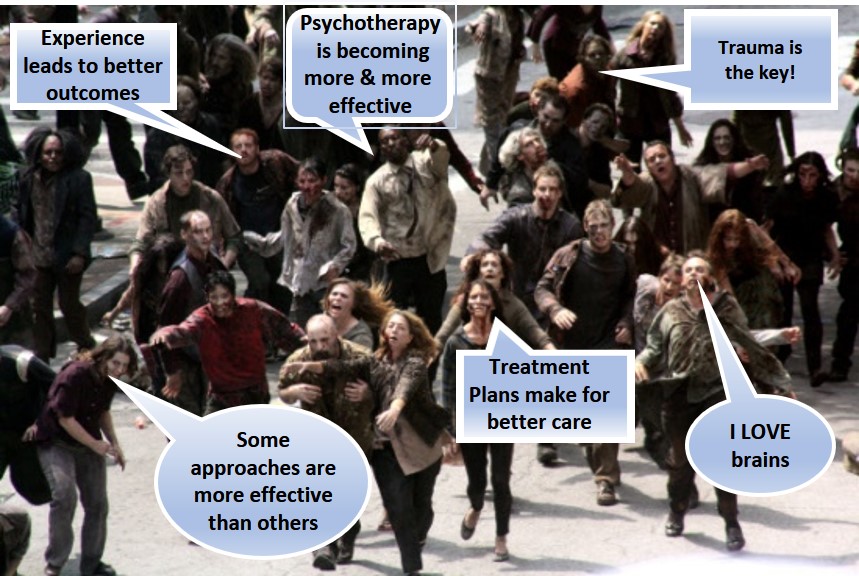Therapists value supervision. How do we know? Research.
In their massive, long-term international study of therapist development, for example, Orlinsky and Rønnestad (2005) found, “practitioners at all experience levels, theoretical orientations, professions, and nationalities report that supervised client experience is highly important for their current and career development” (p. 188).
Regulatory boards deem supervision essential, in most jurisdictions requiring trainees have 3,000 hours –or nearly two years of full time work — before becoming licensed to practice independently.
Given such beliefs and requirements, one might reasonably conclude the evidence-base for clinical supervision is substantial. And yet, a thorough search of the literature for studies investigating the relationship between the practice and treatment outcome turns up a mere handful of empirically sound investigations. For these, the best that can be said is, the results are decidedly mixed (1, 2, 3, 4, 5). It’s notable that a popular text on “evidence-based” supervision written by two leading researchers cites zero evidence that it leads to better results!
“Ultimately,” argue researchers Wrape and colleagues (2014), “the criteria by which to evaluate supervision’s efficacy … lie(s) in its power to bring about favorable client changes” p. (36). Clearly, the assumption traditional supervision provides clinicians with the knowledge, skills, and capability necessary to provide safe and effective therapy is empirically questionable. Perhaps the time has come to dump supervision altogether or at least consider new ways for helping clinicians deliver more effective services?
As already indicated, plenty of evidence indicates clinicians appreciate supervision. Indeed, a near linear relationship exists between the number of hours received and levels of practitioner self-efficacy, job satisfaction, burnout, treatment knowledge, acquisition and use of particular treatment techniques and skills. And therein lies the paradox: how, you might reasonably wonder, could such positive results not translate into improved outcomes for clients?
The answer? Experience ([i.e., time in the field] of supervisors and therapists), self-rated efficacy, treatment knowledge, and competence in delivering particular treatment approaches are not, and have never been, related to outcome. So, while regular contact with peers and mentors provides with critical emotional support for clinicians, something more and different is required for them to become more helpful to their clients.
Clues to what might replace traditional supervision can be found in a study by Goldberg et al. (2015) — the only study to date of a process resulting in continuous improvement in therapist effectiveness over time. In it, practitioners engaged in five distinct activities: (1) formal and routine measurement of their client’s experience of progress and quality of the therapeutic relationship; (2) identification of performance shortfalls using the data generated by routine outcome monitoring; (3) ongoing clinical/supportive supervision to aimed at improving responsiveness in real time to the differences between individual clients; (4) coaching from an external expert; and (5) engagement in deliberate practice around basic therapeutic skills.


